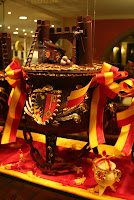Ten years ago today, our sense of security was shattered instantly – the time it took passenger jets controlled by suicide bombers to crash into the Twin Towers, the Pentagon and in Pennsylvania.
It was one of the moments in history where you will always remember what you were doing when you heard the news. When I arrived home from class, a friend was standing in my living room, her eyes glued to the TV screen. “Oh my God!” she cried, “The world is ending.”
I stared at replay of the film footage of planes crashing into the World Trade Center disintegrating 110-floors of metal and concrete, leaving 3051 children without a parent, and destroying the lives of thousands of families.
Terrorism. Live. Direct. In our homeland. At our hearth. In a heartbeat.
Suddenly we are all thrown into a real life horror show.
Yet no matter how many times we heard and saw the televised broadcast, we remained frozen in disbelief.
Even though, I lived far away in Geneva, home of world’s greatest peacekeeping organizations, and in a safe environment in a neutral country, the news stunned my international community of globetrotters. That year, my English class students at a Swiss international school wrote to the children of the UN school in New York, whose students lost family in the bombing.
Today, a decade after 9/11, my new students can’t remember a world without terror. They all know someone who knows someone, who was at the wrong spot at the wrong time in Bali, Jakarta, London, Paris, New York.
Today, even the most seasoned travelers step on the plane with trepidation. And anyone with a conscience wonders, what kind of world are we leaving our children? A world where commercial flights become deadly human missiles, where buildings dissolve like sand castles in the storm, and where innocent lives are annihilated in the blink of an eye.
The Ground Zero monuments, museum and 10th anniversary commemorations offer a tribute to the families of victims of 9/11 and to the American spirit of resiliency. As we take a moment of silence to reflect and honor the men and women who perished during the attack or rescue mission, may be we also say a prayer for those people of other lands who have also lost loved ones in the fall out of terrorism.
One of my former students was 12-years-old when her mom died in the bombing of the American Embassy in Nairobi. She wrote about it in class.
“When they told me, I was so upset I tried to run through a glass door. Now I write until my fingers bleed.”
Alone at night we still shake, terrified and powerless to curtail the madness of our 21st century world; together in the light of day, we stand tall and reach out in small steps. Healing begins in our homeland, at our hearth, in a heartbeat.



